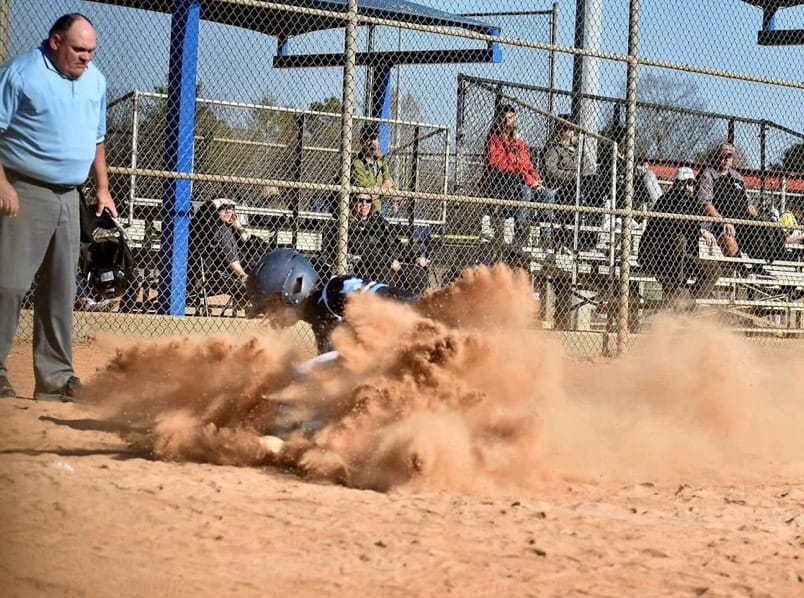- Softball Climate
- Posts
- Are Tournament Directors providing a consistent experience for everyone?
Are Tournament Directors providing a consistent experience for everyone?
Who are holding Tournament Directors accountable?
Like clockwork, every fall and summer hundreds of college coaches mark their recruiting calendars to once again sacrifice time with their families and set out on a mission to identify prospective student-athletes that will either give hope in anticipation of impacting change or support their program’s current success. Several popular tournaments, like IDT in Boulder, CO coinciding with Triple Crown hosting the July Sparkler/Fireworks spanning from Westminster to Aurora, CO have annually cornered the market on certain weekends; often drawing coaches from Power 5 institutions to JUCO coaches.

Westminster, CO
With the popularity of fastpitch softball on the rise thanks largely in part due to increased viewership and tv coverage, several new organizations or affiliates have emerged as a result.
More teams do not always translate into better experiences for the athletes, however.
Fastpitch tournaments have become a big financial business for those involved. From a small local tournament director’s ability to tap into cost-efficient unused local parks spanning the distance of 40+ miles from complex to complex to one of many PGF sponsored events located throughout the West Coast. Registration fees can range from a few hundred dollars or thousands of dollars per team per tournament.
Who controls how many teams are permitted in each tournament?
Who decides, or is persuaded, at which complex will each team will compete?
Is it fair for a team to say they are competing in the same showcase as another team that’s playing over an hour away?
How is it expected a college coach physically cover the massive amount of distance in between games in less than 2 days* with time limited games?
*NCAA Fall Recruiting Calendar for Division I coaches allow for 6 weekends to evaluate Saturday/Sundays only.
As a former college coach who often tried to navigate the complex matrixes of tournament schedules, taking into account driving times, time limited games (god help us if the games started early) and the sometimes dozens of fields teams would play on any given weekend, the BIGGER the tournament was not always better; and that’s from a recruiters perspective.

Suppose you’re a travel ball coach and are attempting to fulfill your promise to parents and players of “maximum exposure” by “showcasing” your team in front of college coaches. In that case, you may have rolled the dice, paid your exorbitant registration fee at one of the bigger national tournaments, and hoped for a few respectable game times that didn’t require a 6:30a first game warm-up time and 8pm last game start time.
But are you going to get the same experience as a fellow “Top 25” team placed at the main complex with fancy roped-off seating for college coaches, a hospitality tent and just minutes away from their convenient hotel?
Should tournament directors be charging the same for every team despite very different experiences?
Most recently, at Scenic City Fall Tournament, one team, NOT a “Top 25” team per Alliance rankings, had a Saturday game schedule that consisted of an 8a, 12p, 6p (win play 8p), win again, 8am Sunday. How is a 14-16 hour day at the field good for anyone’s mental and physical health?
Also, same tournament, another team not ranked in the Top 25, was placed at fields an hour away from the well-groomed main complex that was littered with college coaches in the stands. The entire weekend only a single college coach managed to find time to drive out and see their game. Not to mention, ALL WEEKEND their field was NOT tended to properly or at all for that matter posing challenges for umpires to make accurate calls and players to field balls cleanly on the chopping unkept surface.

“The Ultimate Fastpitch Experience”

Field conditions @Scenic City 2023
Why should this team have paid the same registration fee as those at the main complex?
At some point, tournament directors need to cap registration, and ensure all teams, despite location, are playing on well-maintained fields ensuring the safety and consistency in play for all teams and limiting the time and or number of games any one team should be playing in a day.
Should the Alliance step in a regulate how their sponsored tournaments are run? If so, then PGF, USSSA, NSA, and Triple Crown should follow suit. Or perhaps, one governing body should regulate this as well. Much like travel ball coaches, tournament directors can really do whatever as long as it’s good for the bottom line; despite what it means for players, parents, and coaches’ physical and mental health.

You tell us, Safe or Out?
Do you have a story from an experience you’ve had you want to share anonymously? Email us at [email protected]/